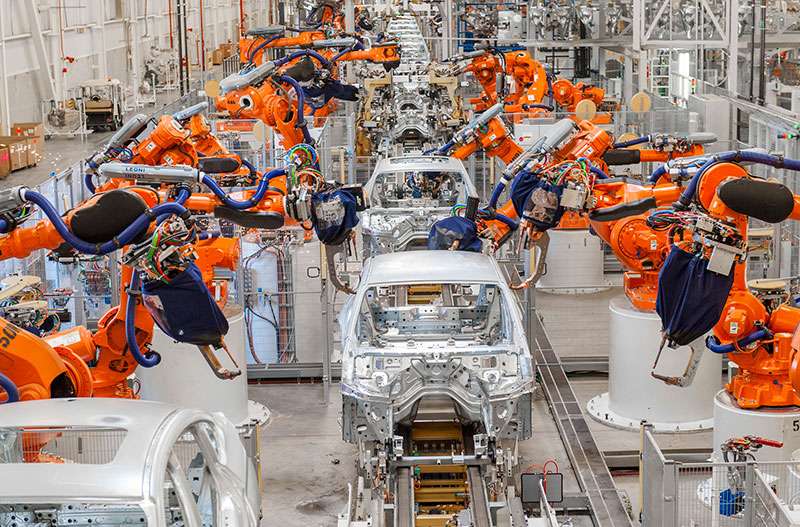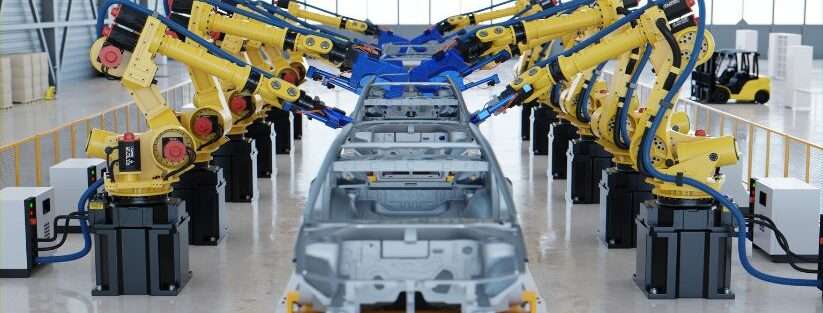
The auto manufacturing industry is experiencing a change never seen before in this segment. The unprecedented change is due to the effects of EVs on the auto manufacturing industry and its users.
Reports are predicting and estimating the production of the automotive industry on a large scale of volume, complexity, and time.
Looking at the new key trends of the auto industry and the changing mobility behavior of the users are key contributors to the movement. All these create a better and more positive effect on the automotive sector.
Before we go into further details, let’s look at the primary reasons and change the pattern!
What’s Driving the Change in Auto Manufacturing Industry?
We are looking at the changing patterns, and people are using their vehicles, sharing them with others, and maximizing the use of public transport means. Along with this, people are looking to improve their comfort and experience as a driver and their experience on the road while driving or commuting in the vehicle.
People have demanded better quality and safety of vehicles. Also, the need for more simplified features that will improve the experience and reduce carbon emissions has increased a lot in the previous decade.
The Auto Manufacturing industry is trying new and flexible concepts. This change in the requirement and perception of customers has made the designers and manufacturers look for new innovative ways, and it has brought some challenges along with the innovation. This trend will continue for some time now, and there will be more variations of individual vehicles.
The current momentum of digitization or digital twin includes the parts, components, and processes. The whole process runs from the pre-production planning to the post-sale service.
The data is compiled; similarly, it helps improve the complete process, provides a better customer experience, and helps build up the trust and loyalty among the customers and auto companies.
The smart and cloud-based data storage and processing through digital factories of auto manufacturers are looking for new ways to interrupt the older production modes. This new way is completely safe, autonomous, and connected to each step for a centralized command.
Various Ways Technology has been Transforming the Auto Manufacturing Industry
1.Electrical Power
The first electrical car was introduced to the public in the late 1890s, and two decades later, they began to gain popularity.
Several businesses are now working on electrical, solar, and wind energy. Sustainable electric vehicles have been made possible by these technologies. These cars become economical once they are purchased. As a result, producers are concentrating more of their resources on electrification techniques, which promise significant fuel savings
2.Increased Security
For instance, using adaptive cruise control can significantly reduce the risk of collisions. This technology automatically modifies your speed to maintain a safe following distance by using sensors to monitor the position and speed of other on-road cars. On long journeys or in congested traffic, it can be of great assistance.
An additional fantastic safety element that is becoming more popular is autonomous emergency braking. It use sensors to identify potential collisions and automatically applies the brakes to assist prevent or lessen collisions. It can also save a life in those critical circumstances.
3.AR Indicator
Technology, as we all know, is radically changing the auto manufacturing sector today. Thus, you can alter the windscreen in a scream to present data to the user with the aid of cutting-edge auto manufacturing technologies like AR (Augmented Reality). With augmented reality, the system can display relevant data on the screen, such as speed, mileage, the weather at the moment, RPM, and more. Numerous well-known companies, like as Mercedes-Benz, Jaguar, Volvo, Toyota, and Mazda, use AR features.
4.Battery Cells
Electric and hybrid vehicles emit significantly fewer emissions than conventional petrol or diesel vehicles since they use less fuel. Furthermore, the electric car industry is witnessing an increase in the number of electric vehicles on the road as battery technology advances. Engines with internal combustion are becoming more efficient thanks to technology. Modern machinery has the capacity to burn fuel more thoroughly, which reduces pollutants.
Another technology that shows promise for the automobile sector is fuel cells. Fuel cells produce only heat and water as waste when they convert a fuel’s chemical energy into electrical power. They are therefore a great and effective means of supplying electricity to a car.
5.Enhanced interconnectivity
Technology is constantly advancing, and the auto manufacturing sector is no exception. Modern technology is making cars more connected than they have ever been. This enhanced connectivity can be useful for a variety of purposes, including safety and navigation.
Being able to maintain connectivity while on the fly is one of the most significant benefits of enhanced connectivity. Drivers and passengers can access the internet while driving thanks to in-car Wi-Fi. This might be an excellent method to pass the time on a lengthy travel or do work while in transit.
6.Maintenance planning for the manufacturing sector.
Auto Manufacturers are using predictive technologies to assist them in making better decisions so they can stay ahead of the curve.
Artificial intelligence in the form of predictive technology uses data analysis to forecast future events. Better products may be designed, production procedures can be enhanced, and even consumer behaviour can be predicted with the use of this data.
Predictive technology, for instance, can be used to spot trends in client demand and then alter output as necessary. It can also be used to anticipate disturbances and make plans to accommodate them, which will enhance supply chain management.
Some of the biggest names in the automotive sector are already utilising predictive technology, and its significance will only grow in the years to come.
Conclusion
The current global economy is changing rapidly, and the pattern of this change is quite dramatic. This trend is triggered by the new segments of the auto manufacturing sectors and innovations in technology.
The trends in auto manufacturing have accelerated the emergence of new technologies. It has brought some key concerns about the sustainability policies for the betterment of nature and impacting consumer behaviour regarding mobility and ownership.
Automation is in every segment so is digitization. The new business model has revolutionized the companies, and auto manufacturing companies are also jumping this ship.
Considering the rapid change in this industry and the psyche of its consumers, the experts are predicting the game-changing interest to be hardened in 10 to 15 years.

